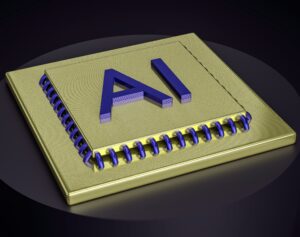The Rise of AI: A Revolution Creating Jobs, Not Killing Them
Discover how AI is not replacing jobs but creating new opportunities. A real story from rural India shows how technology is empowering the next generation of workers.
A lot is being said about artificial intelligence. Every other conversation seems to echo one common fear—Will AI take away our jobs? It’s a fair question. But if we look at the broader picture and observe the direction the world is moving in, the story becomes much more layered than that.
AI isn’t just a buzzword anymore. It’s a silent revolution that’s steadily embedding itself into everything—from how we shop to how we communicate, learn, and work. Think about people like Elon Musk, Mark Zuckerberg, and Sundar Pichai—these aren’t individuals who chase trends. They build the future. And they’re heavily investing in AI. That alone should say something about its long-term presence.
But here’s the truth no one says out loud—AI is not here to steal your job. It’s here to redefine it.
Yes, automation can handle routine tasks. It can assist with graphic design, make presentations faster, even write code. But does that mean millions will be jobless? Absolutely not. In fact, it’s quite the opposite.
AI is creating a new economy—one that rewards creativity, problem-solving, and adaptability. It’s not replacing humans, it’s reshaping how we work. Earlier, people needed advanced training to do video editing, advertisement creation, music production, or fashion design. Today, with the right tools, even someone with a basic understanding can get started. That’s power democratized.
Take, for example, the world of film and media. Earlier, a single project required a full-fledged team—scriptwriters, editors, sound designers, poster artists, and so on. Now, with the help of AI tools, one person can manage all these tasks alone. They can write a script, generate a voiceover, edit the video, design the poster, and publish it—all from a modest laptop at home.
And it’s not just theory. Let me share a real story.
A girl I know left her well-paying job in the software sector. She returned to her village in Madhya Pradesh, unsure of her next step. But she noticed something interesting—her family’s farm produced high-quality turmeric. She began experimenting. With no marketing background, she learned how to brand, pack, and sell her produce online. The first year, she earned ₹2 lakh. The second year, her profit touched ₹20 lakh. All of this happened not because she had a big team—but because she was willing to learn, adapt, and use technology to her advantage.
This is not a one-off story. It’s happening all around us. New businesses are being born every day because AI has lowered the entry barrier. You no longer need huge investments or a team of specialists. What you need is a willingness to experiment, to learn, and to create.
AI, like any other tool, is only as good as the hands it is placed in. It can solve complex problems, analyze data better than most humans, and offer logic-based solutions. But what it doesn’t have—and likely never will—is emotion, intuition, and human empathy. That’s where we come in. That’s our irreplaceable edge.
So what lies ahead?
An economy where creators, thinkers, and problem-solvers thrive. Where you don’t need to be in a big city to start something meaningful. Where a farmer’s daughter can build a national brand from a rural village. All powered by the right mindset and the right tools.
AI isn’t a threat. It’s an invitation—to reimagine how we work, and more importantly, why we work.













Post Comment